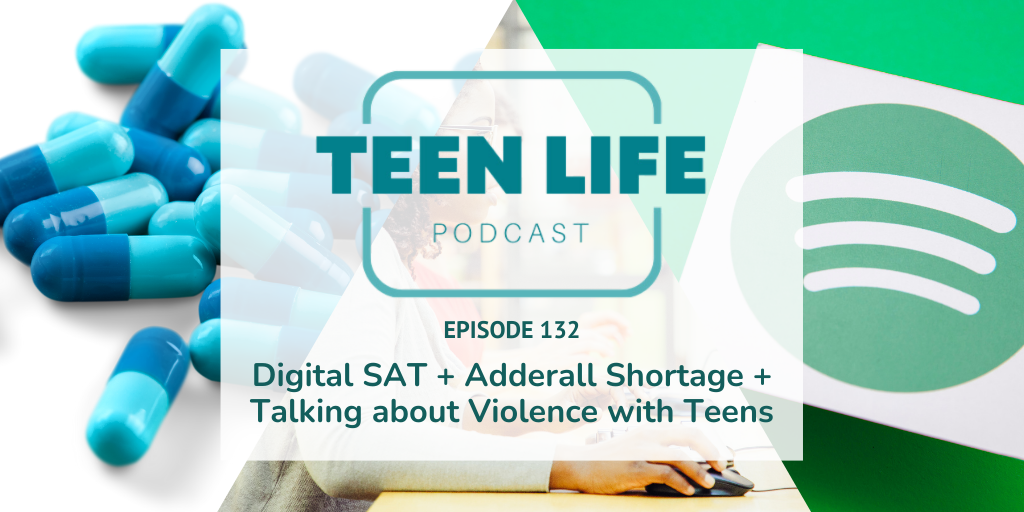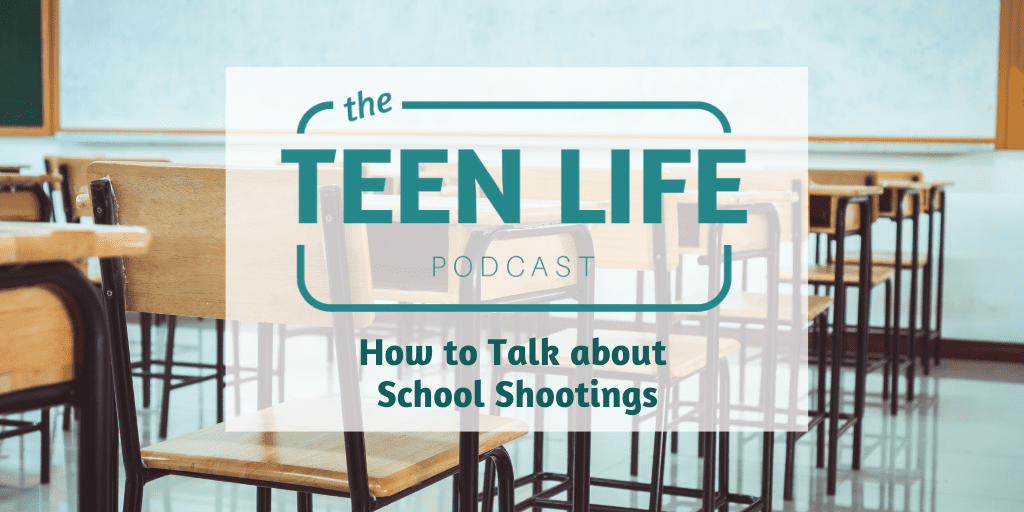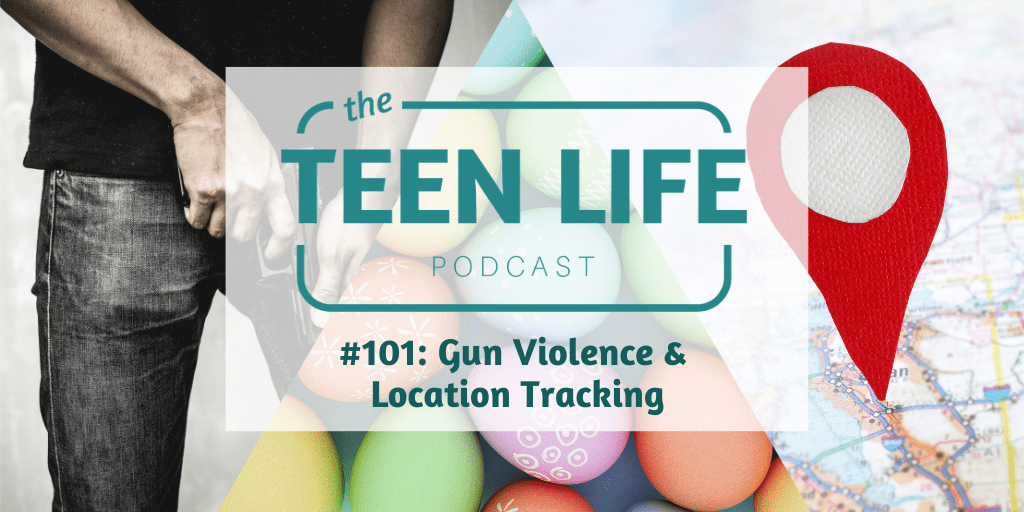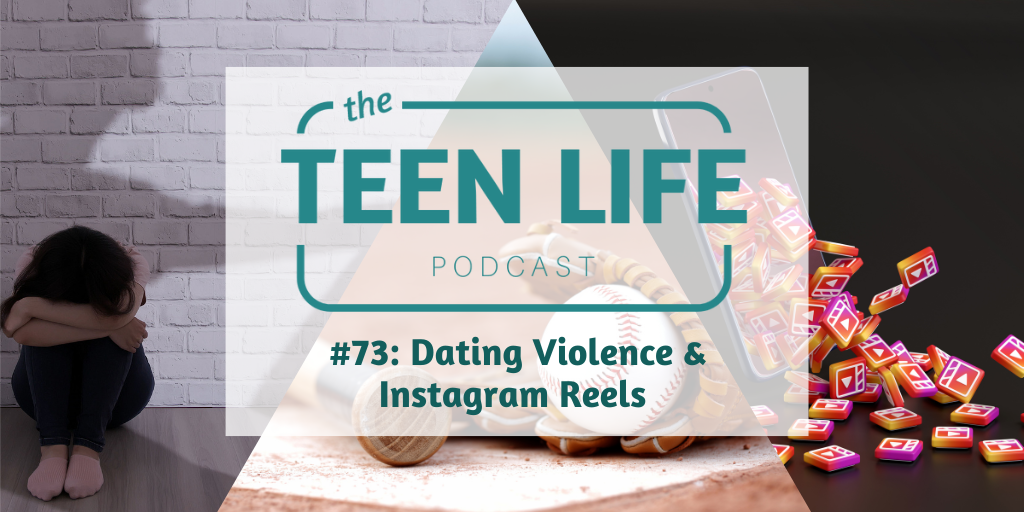Podcast: Play in new window | Download
How do I talk about violence with my teen?
Talking about violence and political issues with our teenagers can be challenging. If your child (or one of their friends) has a cell phone they are inevitably exposed to a multitude of complex and often distressing topics.
The recent Israel/Gaza situation, concerns about gun violence in schools, and the impending elections have undoubtedly raised anxiety levels among teenagers. Questions about the possibility of another world war, the prospect of a military draft, and the implications for their future have become pressing issues.
Discussing these challenging subjects with your teens while providing them with accurate information is crucial to their developing discernment, as well as in calming anxiety or fears they may have.
Starting the Conversation
It’s crucial to initiate the conversation about these pressing issues and create a safe space for your teens to ask questions and share their concerns. Here are some steps to help you get started:
Open the Door
Begin by asking open-ended questions. You might say, “What have you heard about the Israel/Gaza situation? What questions do you have? What are your friends saying about it? Have you come across anything on social media?”
Honesty is Key
It’s essential to provide truthful, accurate information using real words. While we don’t want to scare our teens, if they ask questions, it’s because they want real answers. Be straightforward and transparent in your responses.
Connection is Vital
When discussing these topics, take the time to sit down with your teen, make eye contact, and be fully present. Creating a connection is essential to build trust and ensure that they feel heard and understood.
Model Self-Care
It’s okay to let your teens know when you need a break or are feeling saddened or overwhelmed by current events. By being open about your own self-care practices, you are setting an example for them on how to manage their own emotional well-being.
Not All-Knowing
It’s perfectly acceptable not to have all the answers. If you’re unsure about something, offer to look it up together or tell them you will research and provide them with a response later. This shows your commitment to learning and growing alongside them.
Encourage Ongoing Dialogue
The goal is to foster a culture of open communication. Encourage your teens to keep asking questions and sharing their feelings. Let them know that the door is always open for them to come and discuss their concerns.
Navigating Explicit Content on Social Media
Today, social media platforms like TikTok are sources of information and news for our teenagers. However, this also means they are exposed to explicit and sometimes disturbing content. It’s essential to address this issue as well. Consider using these strategies:
- Educate Them on Responsible Content Consumption: Help your teens understand the importance of consuming content responsibly. Encourage them to be critical of the information they come across and seek reputable sources for news.
- Set Boundaries Together: Discuss with your teenagers the importance of setting boundaries on social media and consuming age-appropriate content. Offer guidance on how to filter or limit explicit content.
- Stay Informed: Keep yourself informed about the platforms your teens use, so you can have informed conversations and offer guidance on safe and responsible online behavior.
By creating a safe and open environment, maintaining honesty, and modeling self-care, you can help teens navigate these challenging topics while fostering a sense of security and understanding. Encourage them to ask questions, share their feelings, and remain actively engaged in the ongoing dialogue as they grow and learn about the world around them.
Also in this episode…
- The use, misuse and the shortage of Adderall
- Digital SATs take center stage
- What is Spotify JAM and why should you use it?
In this episode, we mentioned or used the following resources
- Spotify: Jam
- CollegeBoard: Digital SAT
- The Teen Magazine: Everything You Should Know About the Digital SAT
- NBC News: Up to 1 in 4 students misuse ADHD drugs, study finds
- Time: One Year Later, Where’s All the Adderall?
- Shoreline Recovery Center: Adderall Addiction and Misuse Among Teens
- Instagram: @drbeckyatgoodinside
- Teen Life Podcast: Gun Violence | How to Talk About School Shootings
- Teen Life Blog: Shifting Gears: Restoring Hope in an Anxious World | Combating Fear in the Face of School Shootings
- Podcast music by Luke Cabrera & Tobin Hodges
Have a question?
If you have a question about something you heard or just want to give us some feedback, please leave us a comment below. We would love to hear from you!
About Us

Karlie Duke
Communications Director

Tobin Hodges
Program Director

Caleb Hatchett
Podcast Host
Caleb Hatchett | Podcast Co-Host
Caleb loves helping teenagers take ownership of their faith and relationships. He graduated from Abilene Christian University with a degree in Youth and Family Ministry and is currently Student Ministry Director at Jenks Church in Oklahoma.
Tobin Hodges | Program Director
Tobin’s entire career has been centered around students and teens from all walks of life. He has a passion for helping teens be their best selves. As Program Director, he loves working directly with school staff and students through Teen Life Support Groups. Tobin has a Bachelor’s Degree in Music from Texas Tech University.
Karlie Duke | Director of Communications
Karlie has always had a heart for teenagers. Through her role at Teen Life, she loves to showcase the amazing stories coming out of Support Groups, but she is especially passionate about helping adults and teenagers find connection. Karlie has a BS in Communications with a minor in Family Studies from Abilene Christian University.












